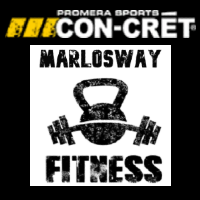5 Components of Physical Fitness
Physical conditioning is the capability to work efficiently throughout your workday, perform your typical other activities and still have adequate energy left over to manage any additional tensions or emergency situations which might emerge.
The parts of physical conditioning are:
* Cardiorespiratory (CR) endurance – the effectiveness with which the body provides oxygen and nutrients required for muscular activity and transportations waste items from the cells.
* Muscular strength – the best quantity of force a muscle or muscle group can apply in a single effort.
* Muscular endurance – the capability of a muscle or muscle group to carry out duplicated motions with a sub-maximal force for prolonged time periods.
* Flexibility – the capability to move the joints or any group of joints through a whole, typical variety of movement.
* Body structure – the portion of body fat an individual has in contrast to his/her overall body mass.
Improving the very first 3 parts of physical fitness noted above will have a favorable effect on body structure and will lead to less fat. Extreme body fat interferes with the other physical fitness elements, decreases efficiency, diminishes look, and adversely impacts your health.
Elements such as speed, dexterity, muscle power, eye-hand coordination, and eye-foot coordination are categorized as parts of “motor” physical fitness. A reasonable weight loss and physical fitness program looks for to keep or enhance all the elements of physical and motor physical fitness through noise, progressive, objective particular physical training.
Concepts of Exercise
Adherence to particular standard workout concepts is essential for establishing an efficient program. The exact same concepts of workout use to everybody at all levels of physical training, from the Olympic-caliber professional athlete to the weekend jogger.
These standard concepts of workout should be followed.
Consistency
To attain a training result, you need to work out frequently. You need to work out each of the very first 4 physical fitness parts at least 3 times a week.
Development
The strength (how tough) and/or period (the length of time) of workout should slowly increase to enhance the level of physical fitness.
Balance
To be efficient, a program needs to consist of activities that attend to all the physical fitness parts, considering that overstating any among them might injure the others.
Range
Offering a range of activities minimizes dullness and increases inspiration and development.
Uniqueness
Training should be tailored towards particular objectives. Individuals end up being much better runners if their training highlights running. Swimming is excellent workout, it does not enhance a 2-mile-run time as much as a running program does.
Healing
A tough day of training for an offered element of physical fitness need to be followed by a much easier training day or day of rest for that element and/or muscle group( s) to assist allow healing. Another method to permit healing is to alternate the muscle groups worked out every other day, particularly when training for strength and/or muscle endurance.
Overload
The workload of each workout session should go beyond the regular needs put on the body in order to cause a training impact.
Aspects such as speed, dexterity, muscle power, eye-hand coordination, and eye-foot coordination are categorized as parts of “motor” physical fitness. A practical weight loss and physical fitness program looks for to keep or enhance all the parts of physical and motor physical fitness through noise, progressive, objective particular physical training.
To accomplish a training result, you need to work out frequently. You need to work out each of the very first 4 physical fitness parts at least 3 times a week. Swimming is excellent workout, it does not enhance a 2-mile-run time as much as a running program does.
Follow Me on Social Media